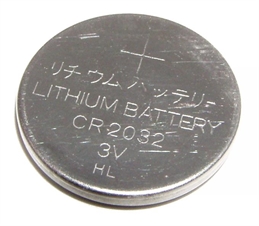
Shippers and forwarders are preparing for the implementation of a ban on metal lithium batteries in the cargo holds of passenger aircraft, but this is likely not the end of road in the battle over such batteries shipped as air cargo. Already there are calls for further tightening of the rules.
Following recommendations from the International Civil Aviation Organization (ICAO), lithium batteries shipped as separate cargo (as opposed to batteries installed in electronic devices) will no longer be accepted by passenger airlines effective January 1, 2015. This move extends isolated national restrictions on such cargo to a worldwide ban.
Calls for such a move had intensified over the past two years, after investigations into deadly crashes of freighter aircraft pointed to fires started by lithium batteries as the chief causes of those tragedies.
Earlier this year, the US Department of Transportation issued a final rule on lithium batteries moved as air cargo, harmonizing US regulations with international standards, which are based on ICAO guidelines.
Lithium metal batteries can still be shipped on freighter aircraft. Originally, pilots associations as well as some hazmat experts had championed an extension of a ban to all-cargo planes, but US authorities decided to follow arguments from the Rechargeable Battery Association, a coalition of battery and electronics manufacturers and logistics providers, which has championed a harmonized global approach. Congress ruled in 2012 that US standards on lithium battery shipments could not be stricter than those recommended by ICAO.
For their part, UPS and FedEx unilaterally took steps to reduce the risk of fire from lithium batteries on their aircraft. UPS ordered fire-resistant containers that could contain a 1,200 degrees Fahrenheit fire for over four hours, enough time for the pilots to reach an airport, while FedEx equipped its widebody freighters with an on-board automatic fire suppression system.
Glyn Hughes, head of cargo at the International Air Transport Association, sees little chance of a ban on lithium batteries on freighters. Nevertheless, he has argued that more regulatory oversight is needed, particularly in light of large numbers of counterfeit batteries. Unlike properly manufactured and packaged batteries that have no safety issues, there are serious concerns about fake batteries, he warned.
The Rechargeable Battery Association has written to ICAO asking for better guidance and awareness campaigns on sending lithium batteries by air in order to raise shippers’ knowledge of the issues involved.
However, there are indications that increased awareness of shippers may not be enough to address the dangers of lithium batteries on aircraft. Earlier this year, the US Federal Aviation Administration reported the results of new tests conducted to establish what would happen if a rechargeable lithium-ion battery in a laptop or tablet used in a cockpit ignited. The tests showed more dramatic results than previously found. In one test the cockpit filled with smoke thick enough to obscure instruments and vision out the window, while another raised the spectre of a battery blowing up, rendering the plane’s fire-suppression systems ineffective.
An ICAO working group comprising representatives from government agencies, airlines, unions and battery manufacturers, which met in September to assess the latest studies, recommended further restrictions. It advocated a reassessment of fire detection systems to ensure they respond quickly enough, and that bulk shipments of the batteries be limited in size and placed in cargo compartments with the best fire-suppression ability.
According to one hazmat expert, a number of recommendations from the ICAO panel will be enacted by 2017/18. Recent accident reports prove that previously made assumptions about the safety of lithium batteries were unfounded, he added.
“Since most gadgets are not subject to strict airworthiness standards and lithium batteries continue to be a threat as being shipped undeclared, serious tightening is likely coming,” he said.
By Ian Putzger
Air Freight Correspondent | Toronto



